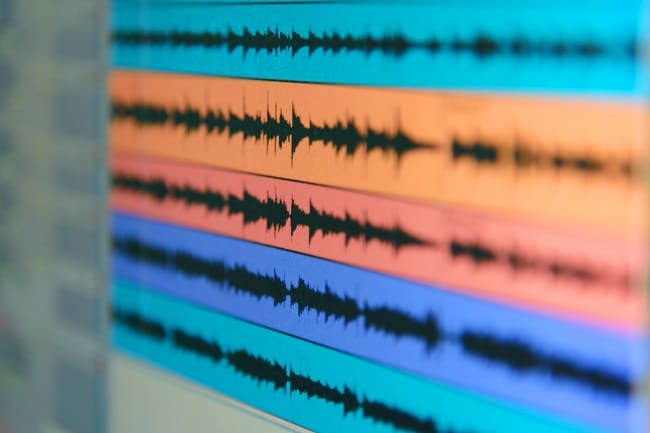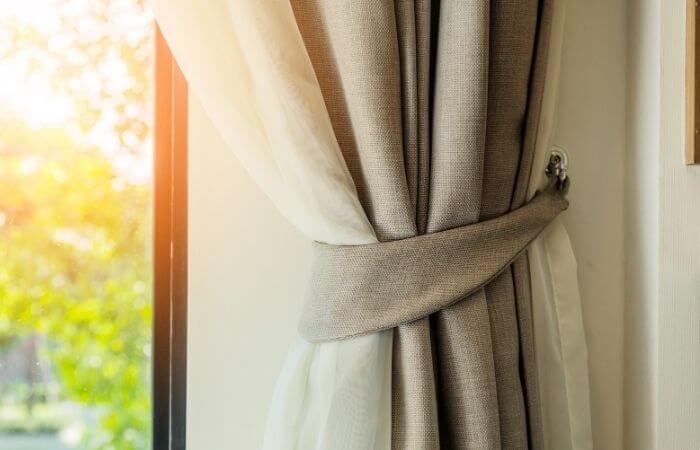Depending on how well your home is soundproofed your neighbors may well be able to hear you talking.
Generally, a normal frequency sound can travel 30 feet. It’s less likely to hear you unless your neighbor has their ear pressed against the wall or floor or your home is very poorly soundproofed.
For a normal conversation, the wall blocks 70% sound. Either you should use a quieter voice or take steps to effectively soundproof your room.
We have seen so many complaints where neighbors attacked home when owners are away.
This could probably turn into a horrifying experience. You should be aware of what you yell in your home.
You cannot expect your neighbor to change their behavior of listening to you.
You should take action to keep your conversation secret.
Frequency of sound through walls
Sound has different frequencies that pass through the walls and obstacles. The frequency of sound is referred to as hertz (Hz). low-level noise frequency would be 250 Hz and the high-frequency noise is 2000 Hz generally.
Humans can hear from 20 to 20k Hz but 200 to 5000 Hz are the most sensitive frequency range humans can hear. Now the question is, how much frequency passes from the walls and obstacles.
The sound travel depends on various factors including the space it can travel and the obstacles it has to cross over. While some noise is extremely loud and can make you uncomfortable.

Here is a simple technique to know whether your neighbor can hear you or not. If you can hear your neighbors sound easily, they can also do it. If you hardly listen to your neighbor’s conversations, you are safe but still, if you want to protect your words, you have to make some investments.
The most common sounds you can hear in your room are low-frequency sounds. Mid-level frequencies are not as bad as low-level sound frequencies because these low-level sound frequencies can turn into noise waves once they touch surfaces.
And to the worst, these can easily travel from the walls and obstacles but not from the soundproof glasses. If you ever feel vibrated when vehicles pass from your street crossing your home, those are the low-frequency signals. The only solution is to soundproof your room.
Either you can use cardboards, furniture stuff to block the windows (Can reduce minimal sound, don’t have to spend a single penny) Or you have to soundproof the room (Cost-effective & can block almost all sound)
If you are sharing space in the apartment, you could have already landed in trouble of tolerating loud noises from outside. Likewise, you can easily find information if there is a common wall that separates you and your neighbor.
How to soundproof your room so that your neighbors can’t hear you?
It’s easy to soundproof your room but you can also soundproof your windows or the most effective areas.
This will reduce your overall cost, but to the brink, you can soundproof your room too.
Unfortunately, a lot of people don’t know how to soundproof doors and windows at less cost.
You have to learn to properly soundproof walls and windows that don’t encounter the sound transmission.

The real help of any sound absorption and sound insulating materials is to stop the echo and sounds from your room. And yes, you can do this all alone with some tools.
If they are laughing at your jokes, it’s serious time to soundproof your room. If you are allowed to make changes to the wall, here are simple things that you can do:
- Insulate your most affected wall
- Seal all windows and doors
- Cover all openings including, ceiling and floor
- Incase of drywall, add another layer
- Use Acoustic glue to cover layers
- Fiberglass act as best sound insulators in the budget
- Add some sound-absorbing sheets on the floor
Soundproof Curtains
Starting with the less expensive thing you can do, adding soundproof curtains to our windows might be the best option. It’s easy to get some blackout curtains which also works as soundproofing curtains.
Soundproof curtains are very effective for reflecting the echo in your room but they cannot limit the frequency levels going from outside.
It doesn’t mean that they can’t help you, you have to use some curtains that can cover from floor to ceiling and have to overlap them with 2 or 3 inches.

Soundproofing curtains are good at lowering the echo levels. First of all, these curtains are easy to get and install but they are thick and heavy.
Without any hard insulation techniques, you can use them to surround your windows and doors.
You can get the design as you like or in any case, if the curtain is damaged or torn, you can easily replace them.
I must say they aren’t good soundproofing materials to block the outer sound, but they can damper the echo within your room.
If you think, you need minimal materials to stop the echo, soundproofing curtains are best at work.
Sound absorbing panels
Acoustic panels are also known as sound-absorbing panels provide great sound absorption for dampening echo sounds in various places.
Sound absorbing panels are bulk in designs and can choose one to attach them on your floor.
These acoustic panels absorb sound waves to reduce noise and echo.

Using these panels on the floor and walls will have a good impact on sound absorption. I have found good acoustic panels from Acoustic Pro from Second Skin Audio for small and medium rooms.
The foam works by causing the sound energy to dilute into the foam as the heat and the open structure will push the sound into the air resistance module and sound waves meet foam to slash the echo and vibrations.
This will be a good add-on to keep your secrets inside your room.
Re-working on Walls
If you can spend more or if you have too thin walls that take your sound to the world, here is how you could improve it.
Damped drywall is a wall layer that uses vibration damping techniques to compress sound waves as they travel through those panels.
Damped drywalls are constructed from a number of different layers to give extra thickness and strength to the walls.
Damped drywalls are easy to install even a beginner can screw it.
Traditional drywalls are surprisingly good sound conductors.
Soundproofing drywall requires framing applications like adding sound-insulating layers to the wall.
Installing the portion of the walls twice is expensive but according to your requirement, you can soundproof the drywall and the results would be worth the money if everything is in perfect position.
Final thoughts
All the possible methods we have mentioned here are great to start work and are good solutions as well.
But, for really noisy environment areas, you should consider soundproofing your rooms professionally which may involve a lot of work and money.
While today’s engineers and house owners are taking innovative ways to soundproof your home, there is something people are still missing.
You cannot block the 100% sound from outside but you can reduce the sound going from inside. Proper insulation materials and placements will help you not to reveal any of your secrets to the neighbors.
Excessive use of sound insulating materials will sabotage the beauty of your walls.
If the insulation was done with precautions and the right materials, the cost would be less than you think and as a result, you can expect great soundproofing stuff.
As an Amazon Associate I may earn a small fee from qualifying purchases at no extra cost to you. This helps us run the site, so thanks for your support!